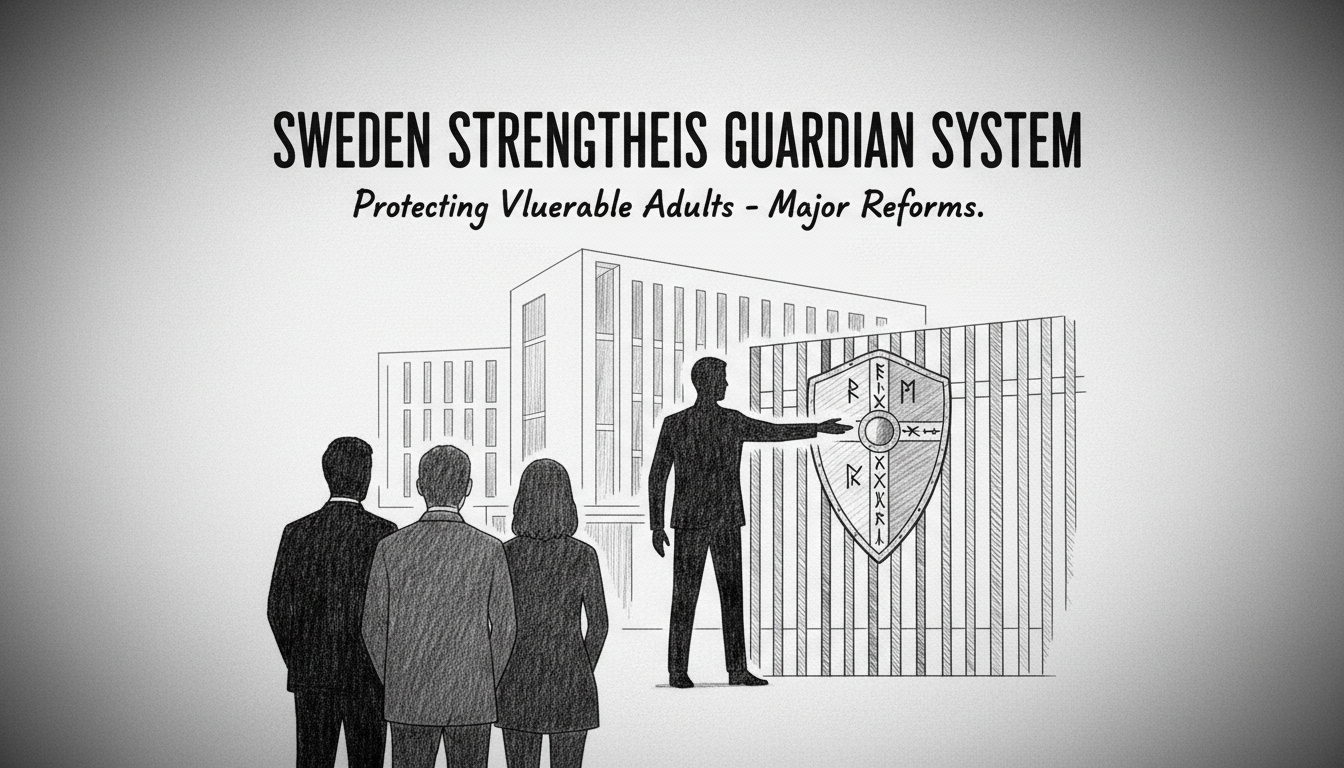The Swedish government announced major reforms to improve its public guardian system. Justice Minister Gunnar Strömmer revealed the plans following widespread criticism of how vulnerable adults receive legal protection. The changes aim to strengthen individual rights and enhance service quality. They also seek to improve recruitment and retention of qualified guardians.
Strömmer emphasized the importance of these trusted roles in society. He noted that guardians help people who need assistance and support. But he acknowledged serious problems within the current system. The minister referenced specific cases that exposed systemic failures without naming individuals or media sources.
One case involved a man from Örnsköldsvik who received incorrect guardianship decisions. He eventually won his case in Sweden's Supreme Court. Another case saw a woman moved from Degerfors to Örnsköldsvik against her will. She received a different type of legal representative than originally intended.
The justice minister identified several key issues plaguing the system. Finding suitable people willing to serve as guardians remains challenging. Some representatives mishandle their duties through ignorance or carelessness. In worst cases, individuals act with malicious intent. Strömmer also addressed concerns about guardians taking on too many cases. This overextension prevents them from providing adequate support to each person they serve.
Sweden's guardian system provides crucial protection for adults who cannot manage their own affairs. This includes elderly people with dementia and individuals with disabilities. The system has faced mounting scrutiny in recent years. Critics argue it sometimes fails its most vulnerable citizens.
The proposed reforms represent the government's response to these concerns. They follow extensive review of how Sweden handles legal representation for incapable adults. The changes seek to balance protection with individual autonomy. This reflects Sweden's strong tradition of both social welfare and personal freedom.
International observers note that many countries face similar challenges with adult guardianship systems. Sweden's approach often influences other Nordic nations. The reforms could set new standards for protecting vulnerable adults across the region. The government plans to implement the changes gradually over the coming months.
These improvements come at a critical time as Sweden's population ages. Demand for guardian services continues growing. The system must adapt to serve more people effectively. The success of these reforms will affect thousands of Swedes who rely on legal protection.
What do these changes mean for international residents in Sweden? The guardian system applies equally to foreigners living in the country. The reforms should provide better protection for all vulnerable adults regardless of nationality. This demonstrates Sweden's commitment to human rights and equal treatment under law.
